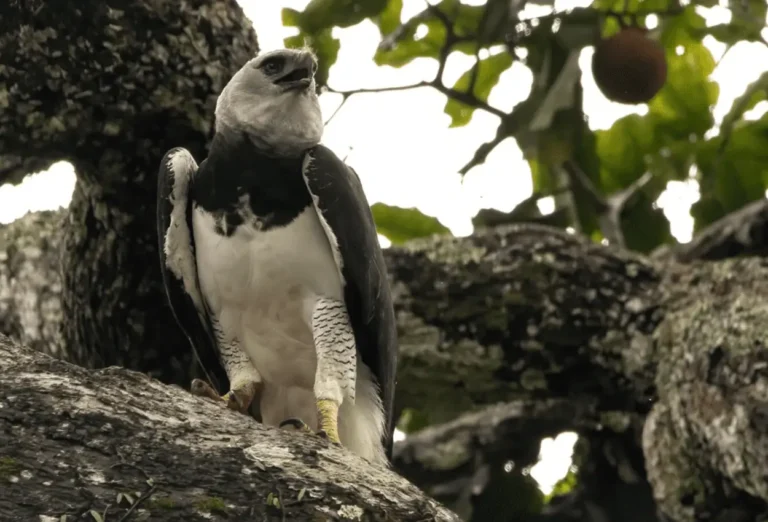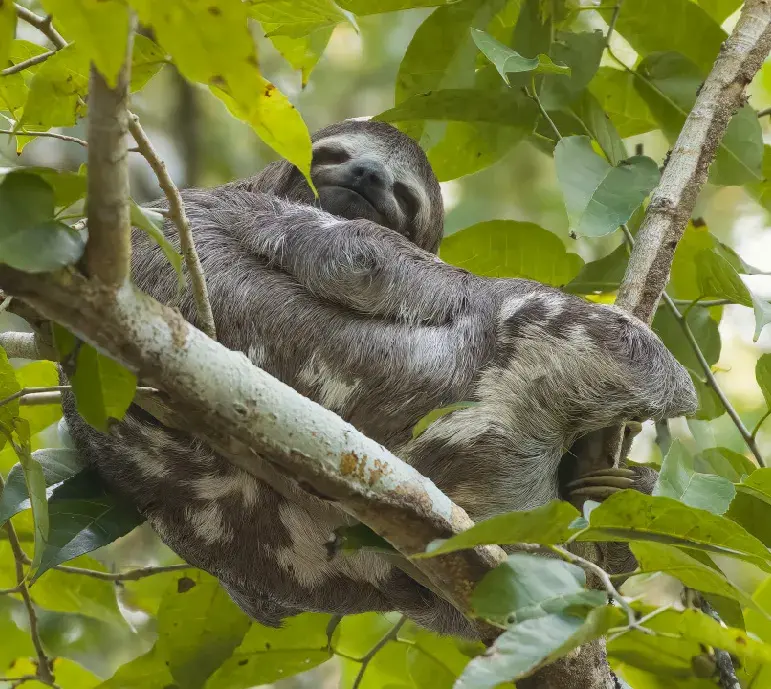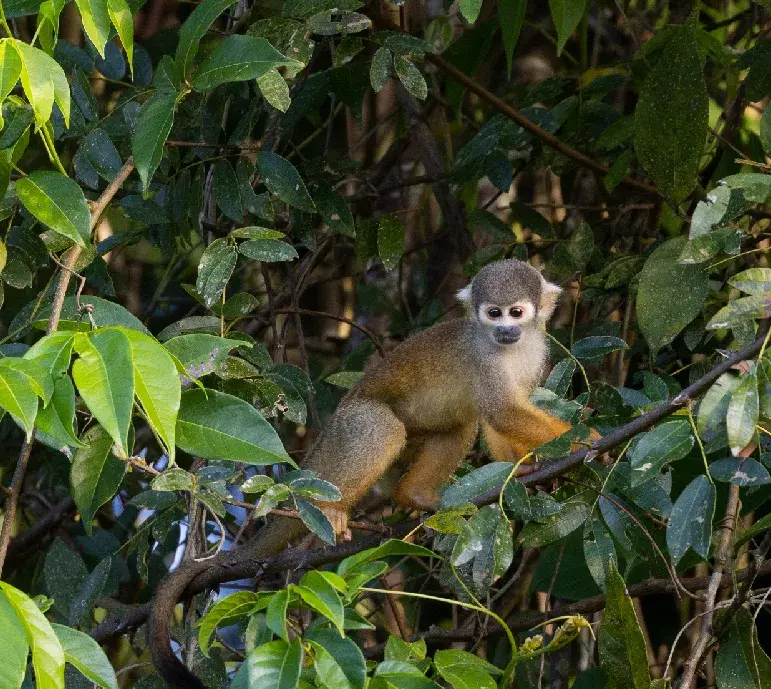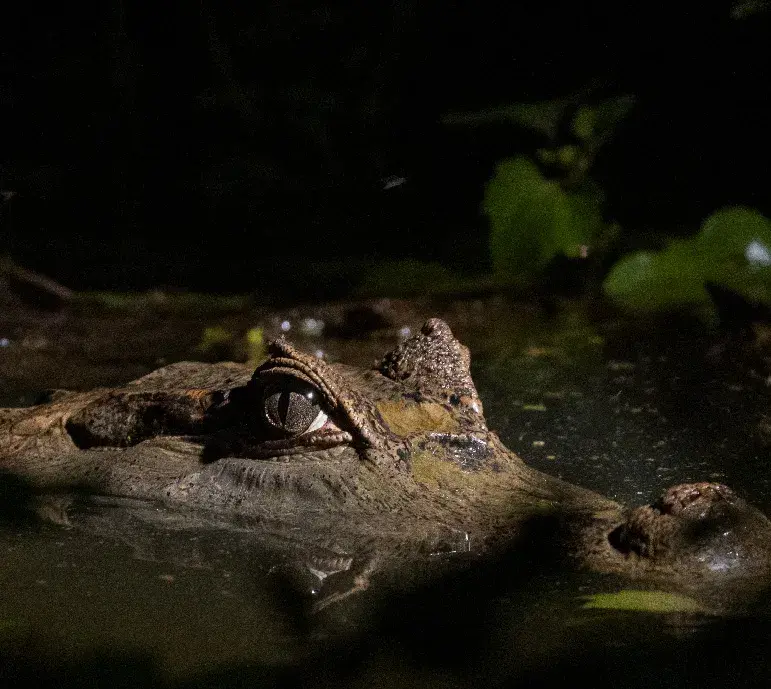Discover the Majestic Harpy Eagle in Tambopata: A Once-in-a-Lifetime Amazonian Adventure
Nestled in the heart of the Peruvian Amazon, the Tambopata National Reserve is home to one of nature’s most awe-inspiring predators – the Harpy Eagle (Harpia harpyja). This elusive raptor, revered by indigenous cultures and sought after by wildlife enthusiasts worldwide, offers an unparalleled encounter for those brave enough to venture into its domain. Join us on an extraordinary expedition to witness the “King of the Amazon Skies” in its natural habitat.
Why Tambopata is the Ultimate Harpy Eagle Destination:
Tambopata’s pristine rainforests provide the perfect backdrop for an unforgettable wildlife adventure:
- Biodiversity Hotspot: Home to over 1,000 bird species, 200 mammal species, and countless reptiles and amphibians.
- Accessible Wilderness: Just a short flight from Cusco, making it easy to combine with Machu Picchu visits.
- Sustainable Tourism: Your visit supports local conservation efforts and indigenous communities.
Physical Characteristics
The Harpy Eagle is a truly imposing bird, known for its large size and distinctive appearance:
- Impressive Size: Harpy Eagles are among the largest eagles globally, with a wingspan that can reach up to 7 feet (2.1 meters) and standing at a height of about 3.5 feet (1.1 meters).
- Distinctive Appearance: Their striking plumage consists of a predominantly white body with black feathered markings on the upperparts, a black band across the chest, and a crown of feathers resembling a distinctive double crest.
- Facial Features: The Harpy Eagle boasts a robust, hooked beak and piercing, slate-gray eyes that make it a formidable predator.
- Incredible Strength: Talons as large as a grizzly bear’s claws, capable of lifting prey twice its weight.
- Facial Features: The Harpy Eagle boasts a robust, hooked beak and piercing, slate-gray eyes that make it a formidable predator.
Habitat and distribution in Peru
The Harpy Eagle prefers to inhabit tropical rainforests and is especially prevalent in the vast Amazon basin. Tambopata National Reserve, nestled in the heart of the Peruvian Amazon, provides a prime setting for observing this incredible bird. With its lush forests, pristine rivers, and diverse ecosystems, Tambopata offers the ideal environment for Harpy Eagles to thrive.
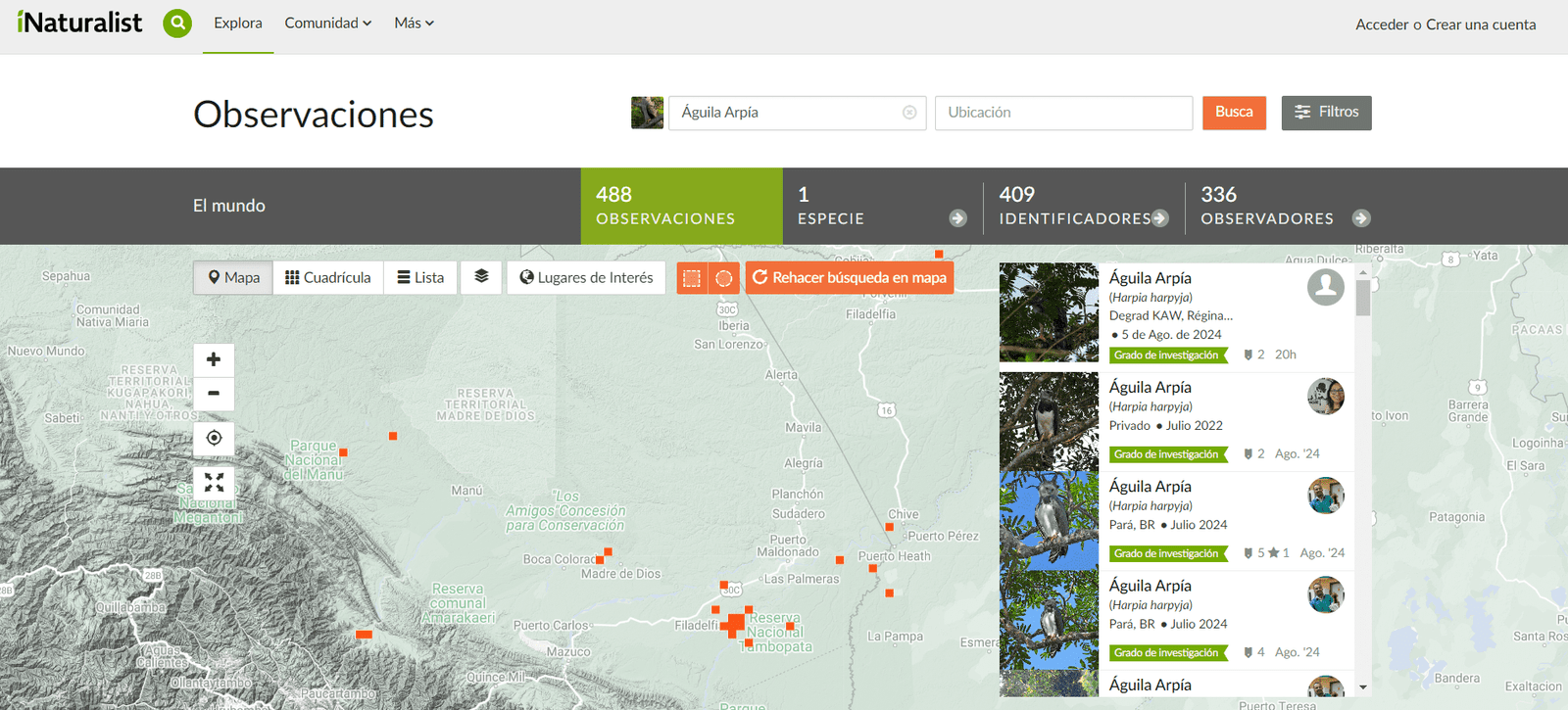
Witness the growing excitement around Harpy Eagle encounters in Tambopata. This interactive map, powered by iNaturalist DATA, showcases recent sightings of these majestic birds in and around the Tambopata National Reserve. Each marker represents a confirmed Harpy Eagle observation, offering you a glimpse into the real-time distribution of these rare raptors in our region.
Behavior and Diet
- Solitary Predators: Harpy Eagles are solitary birds and are known for their stealthy hunting techniques.
- Apex Predators: They occupy the top of the food chain and primarily prey on tree-dwelling animals such as monkeys and sloths. Their powerful talons can exert enormous pressure, making them highly effective hunters.
- Nesting: Harpy Eagles build enormous nests high in the treetops, often using the same nest for several years.
It is important to mention that the harpy eagles usually frequent common places for parrots and macaws within the forests of the Amazon basin of the Tambopata National Reserve, we are talking about the clay licks (large ravines of mineralized clay soil). Sometimes it is possible to see macaws chasing each other trying to escape from their predator, the harpy eagle.
Conservation Status
Despite their status as apex predators, Harpy Eagles are classified as Vulnerable (VU) by the IUCN’s (Red List of Threatened Species). Their populations face threats from habitat loss and fragmentation. Conservation efforts are essential to protect these majestic eagles and their rainforest habitat.
Encounter Harpy Eagles in Tambopata
Visitors to the Tambopata National Reserve have reported sightings of the harpy eagle, particularly in areas with dense tree cover and near riverbanks. These sightings are a highlight for birdwatchers and nature enthusiasts.
- Best Times to Spot the Eagle: The dry season, from May to October, is the best time to visit Tambopata for a chance to see the Harpy Eagle. The lack of rain makes it easier to explore the reserve and increases the likelihood of sightings.
Join Our Harpy Eagle Expedition
Tronco Tambopata Tours invites you to embark on our exclusive Harpy Eagle Expedition. Led by experienced guides and naturalists, this expedition offers a unique opportunity to observe Harpy Eagles and a wealth of other Amazonian wildlife.
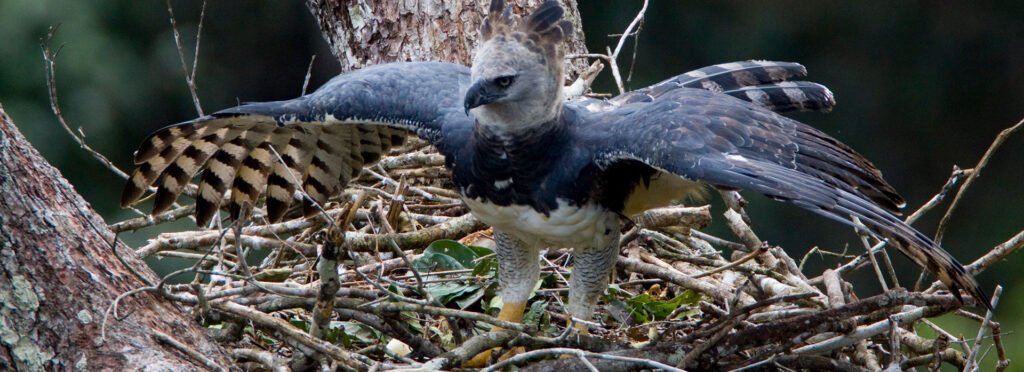
Book Your Harpy Eagle Expedition Today!
Don’t miss the chance to witness the awe-inspiring Harpy Eagles of Tambopata. Book your Harpy Eagle Expedition with Tronco Tambopata Tours now and experience the thrill of encountering these incredible birds in their natural rainforest habitat. Join us in preserving the legacy of these magnificent eagles and the stunning rainforests they call home.

